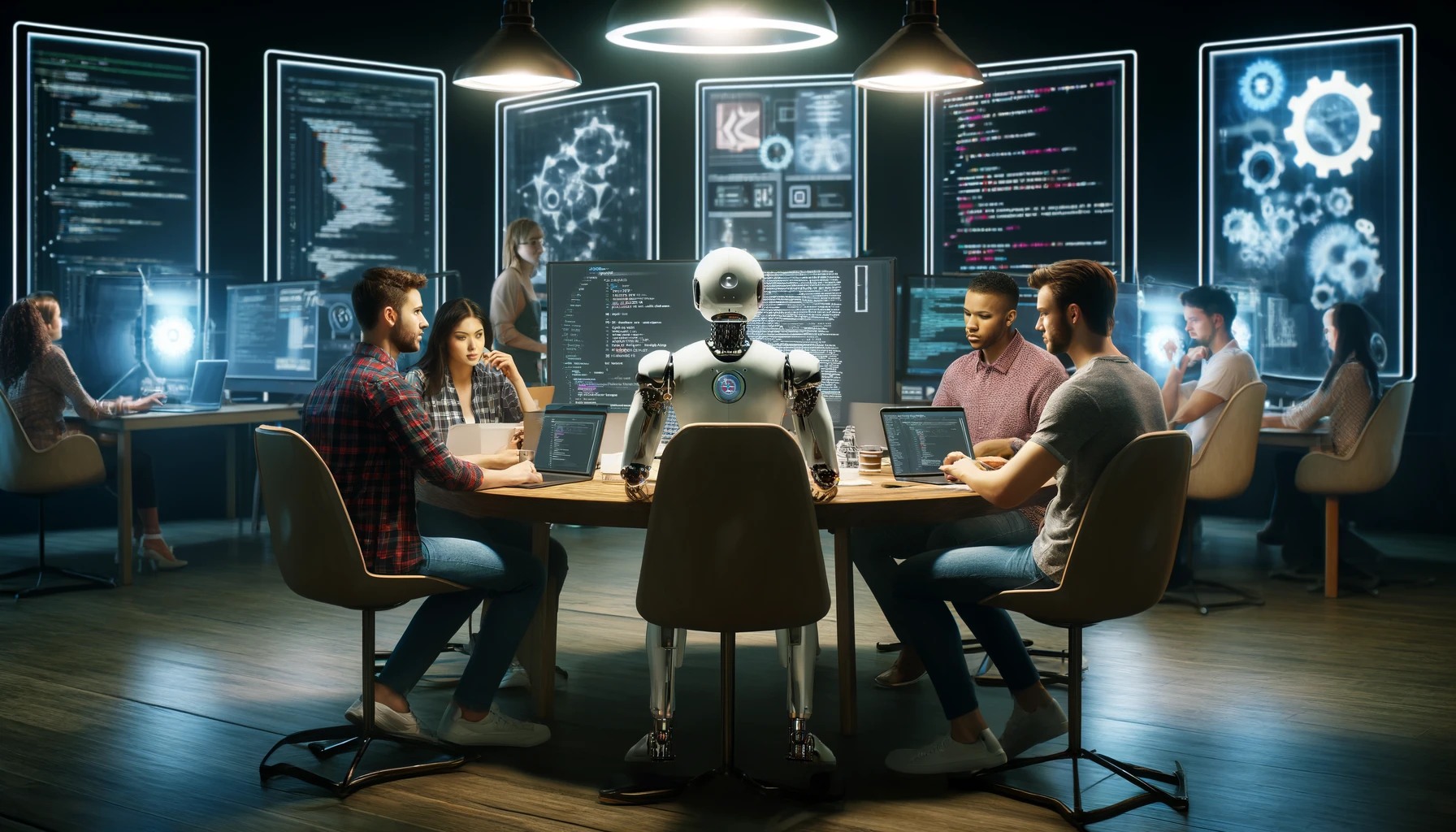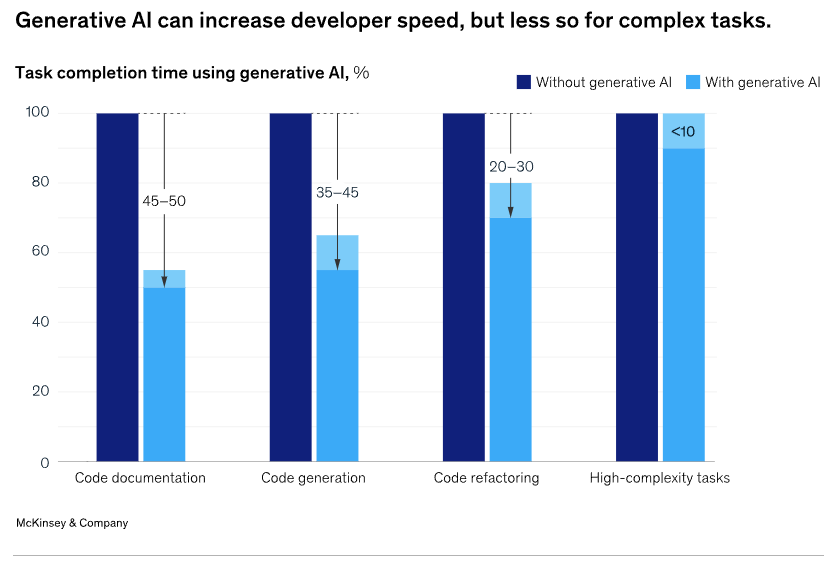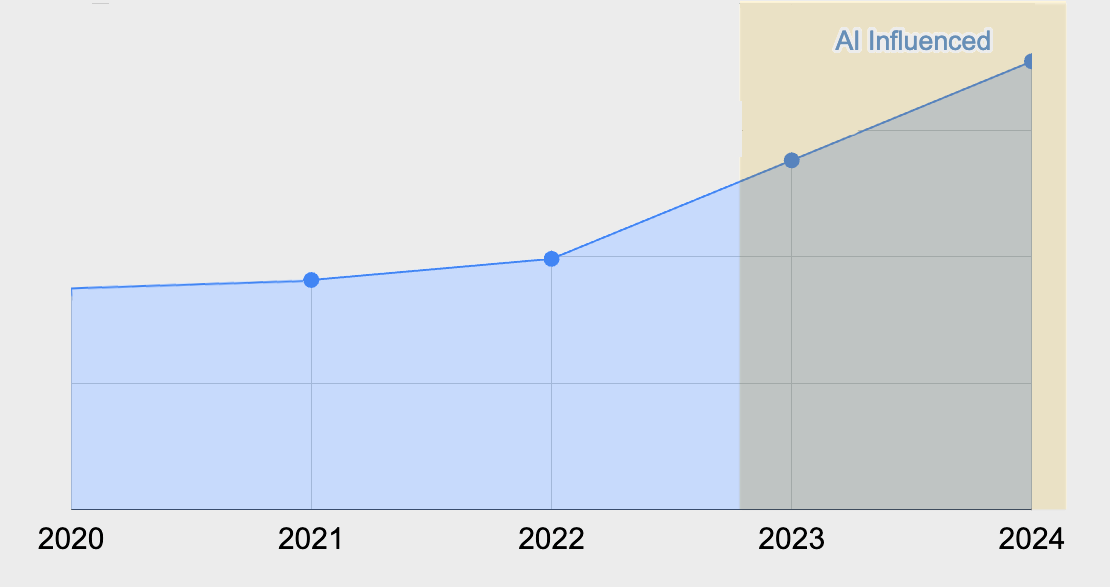AI and Its Impact on Software Quality in Development
April 17, 2024
The integration of Artificial Intelligence (AI) in software development is reshaping how we approach software quality. While AI offers significant benefits, its impact on software quality is nuanced and requires careful consideration. In this post, we will explore how AI influences software quality and the challenges and opportunities it presents.

AI-Generated Code and Quality Concerns
AI's capability to generate code rapidly is revolutionary, yet it often falls short in quality compared to human-crafted code. According to according to a new research project from GitClear, a developer analytics tool built in Seattle , the analysis of 153 million changed lines of code from January 2020 to December 2023 highlighted that AI-generated code frequently requires substantial revisions. The study predicts a significant increase in code churn (“Code churn,” or the percentage of lines thrown out less than two weeks after being authored) for 2024, indicating that much of the AI-generated code is either updated or reverted shortly after its creation. This churn not only raises concerns about the stability and maintainability of the code but also underscores the necessity for stringent quality checks before deployment.
The Role of Human Expertise
Despite advancements in AI, human oversight remains indispensable. Software engineers must thoroughly review AI-generated code to ensure it adheres to high standards of security, functionality, and performance. The human expertise in understanding complex system interactions, edge cases, and non-functional requirements like security and scalability is critical. AI currently lacks the ability to fully integrate these nuanced aspects of software development, which can lead to vulnerabilities or inefficient code if not properly overseen.
Enhancing Software Quality with AI
However, AI also presents opportunities to enhance software quality:
- Automated Testing: AI can automate repetitive testing tasks, efficiently handling a vast number of test cases and rapidly identifying potential failures. This can increase the coverage of testing and help in catching defects early in the development cycle.
- Static Code Analysis: AI tools can perform static code analysis to detect potential bugs and security vulnerabilities before the code is even run. These tools can learn from vast datasets of code to identify patterns and anomalies that might elude even experienced developers.
- Code Reviews: AI can assist in code reviews by suggesting improvements and flagging areas of concern, which can enhance code quality and consistency. This helps in maintaining a high standard across the development team, especially in large projects with multiple contributors.
Challenges in Leveraging AI for Software Quality
Implementing AI in ways that genuinely improve software quality involves several challenges:
- Over-reliance on AI: There is a risk that teams may become overly reliant on AI, potentially overlooking the importance of manual review processes. AI is not infallible, and its suggestions or automations should always be verified by experienced developers.
- Integration with existing workflows: Integrating AI tools effectively within existing development workflows can be complex. Teams must adapt their processes to leverage AI capabilities without disrupting their current operations.
- Training AI Models: AI models require extensive training with high-quality data. Inaccurate or biased training data can lead to AI tools that are ineffective or even detrimental to software quality.
Productivity Gains from AI
According to research by McKinsey, AI tools have marginally improved developers' speed by less than 10% for complex tasks. While AI helps significantly with documentation and initial code generation, its effectiveness reduces when it comes to more sophisticated tasks like refactoring. This highlights that AI's impact on productivity is more nuanced and varies greatly with the complexity of the task.
 Source
Source
Conclusion
AI is transforming software development, offering tools that can potentially increase the efficiency and effectiveness of quality assurance processes. However, the key to successfully integrating AI lies in balancing its use with human expertise. Developers must remain vigilant, ensuring that AI acts as a complement to, rather than a replacement for, traditional quality assurance methods. As we move forward, the role of the software engineer will evolve to not only include writing and reviewing code but also managing and refining AI systems to maintain and enhance the quality of software products. This dual approach will be crucial in harnessing the full potential of AI in software development.

